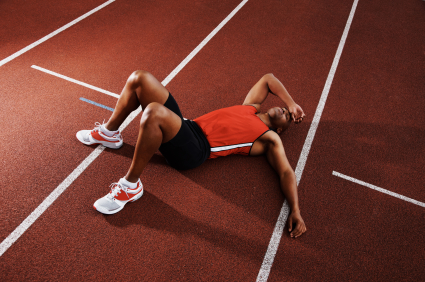Sleep
By: Sol Orwell
Sleep is a general phenomena that sounds horrible on paper. It involves the involuntary loss of consciousness for a third of your life, you feel like crap when trying to omit it and die if you’re somehow successful, but it is vital for health and proper functioning in academics and athletics. It is likened to a reset button, since beyond the revitalizing effect felt when sleep is properly conducted, it clearly distinguishes one day from the next.
The topic of sleep should be emphasized more for young people, since beyond a normal change in the hours slept, there are also many new reasons of questionable importance to omit a night’s sleep, whether it is cramming for a test or simply pulling a recreational all-nighter.
Sleeping in and staying up late appear to be normal adolescent behaviors and are by no means abnormal nor should they be fought against.
Sleep and Sports
Surprisingly, sleep deprivation (we’re talking about losing 2-3 hours over a single night and reporting “I had poor sleep” rather than completely removing sleep) is not really associated with reduced physical performance in controlled testing. If you plop somebody into a leg extension machine or give them a handgrip test, sleep deprivation will not affect their performance.
As soon as you give your sleep-deprived subject a hand-eye coordination test or anything that requires the sixth sense (proprioception) to be activated, they will start to fail. The negative effects of sleep deprivation on athletes seem to be more neural than anything else, so some athletes may be less sensitive to it (football linemen who cannot really visually ‘miss’ their target) while others, requiring more precise motor function, would be affected in a greater way (quarterbacks or hockey forwards who need to aim the ball or puck).
After several months with near-daily poor sleep, the subject is more likely to have adverse changes in body composition. A well-rested subject in the off season building muscle and losing fat is going to have a better time than his poorly-rested counterpart, who will most likely build less muscle, even if their workouts and diets are comparable. Subjects that sleep less may also have relatively more body fat.
Preserving Sleep
There are a few tricks and tips to get the best sleep possible. Start at the top of the list, which contains the most practical and easiest tips, and work down to the more specialized and esoteric suggestions.
Keep a consistent schedule. It is better to fall asleep at 11:00 each night, rather than to try and force sleep at some variable time between 9pm and 1am. If you feel naturally sedated however, go ahead and fall asleep.
Try to sleep in a quiet and dark room. Light will adversely affect getting to sleep, while any sound can actually negatively influence your sleep during sleep. Though your eyes close to shut off excitatory stimuli, your ears do not.
Caffeine too close to sleep is a bad idea, although ‘too close’ is relative to how frequently you use caffeine. For those who never use it, a morning dose may be sufficient and an afternoon dose may be too much. Frequent users should stop by around 2:00 p.m. Caffeine may hinder sleep quality, even if you get enough sleep.
Bright, white lights up to an hour before sleep may adversely affect how long it takes to fall asleep. If you must use electronic devices until bedtime, it would be prudent to dim or redden the light you see (for any computer, f.lux is a free program that does just this). Reddish light impairs the synthesis of a major sleep hormone (melatonin) less than the blue or white lights commonly used in electronics.
About the Author
Sol Orwell co-founded Examine.com in early 2011. He’s been collating scientific research on supplements and nutrition since then, and has released a beginner’s guide to supplements, the Supplement Goals Reference Guide.
Recommended Athletes’ Acceleration Products
—————————————————————————–





0 Comments for “Sleep and High School Athletes”